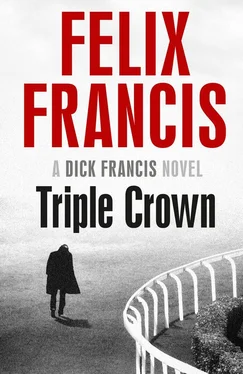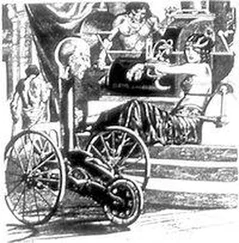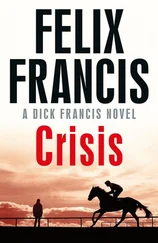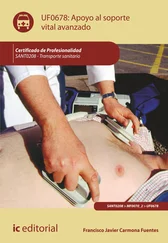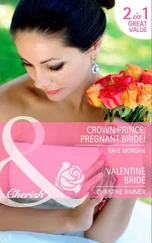I continued grooming Ladybird, brushing out her tail and then trimming a straight edge at the bottom.
As I worked, I thought about the next two days.
It was not only Tony Andretti who would be coming to Pimlico, other members of the FACSA racing section would also be in attendance, and I didn’t want them spotting me as a ringer.
It would be twelve days since I had left them at Andrews Base and, in spite of the fairly vigorous hair growth on my chin and upper lip since then, I was concerned that federal special agents should be well enough trained in recognition techniques to identify me easily, not least because my beard had not grown dark and concealing as I had hoped, but rather blond and wispy like my hair.
Since first arriving at Belmont, I had taken to always wearing my LA Dodgers baseball cap, with the peak pulled down low. Here at Pimlico, there were too many press and TV cameras around to avoid completely, so it was better to be as incognito as possible at all times. So tomorrow, I decided, I would also wear my cheap dark sunglasses to cover my eyes. With luck, the sun would shine so I wouldn’t look too out of place.
I finished with Ladybird as Victor Gomez returned on Debenture. With two days before his race, he had been given a far sterner workout and Maria walked him round the shedrow for a good twenty-five minutes to cool.
While she did so, I went over to the Preakness Barn to fetch some more straw.
George Raworth’s white Jeep Cherokee was again parked close by. The man himself was out at the track so, having swivelled round on my heel to check no one else was watching, I went to the far side of the vehicle and tried the door handle.
It opened.
The cryogenic flask was still there but it was now lying on its side behind the driver’s seat with the cap off. I tipped it up. It was completely empty both of liquid nitrogen and of the semen.
I had a quick look around the rest of the Jeep. On the back seat sat an electric torch and a small cup, along with what looked like a miniature red rubber rugby ball. The ball was about three inches long, with a short blue plastic pipe extending from one end, and it had ‘Polaroid’ stamped into the rubber on one side.
I knew exactly what it was. I’d once owned something very similar.
It was an air duster, designed to blow a stream of air to remove dust from the lens or the inside of a camera. I squeezed the ball and was rewarded by the same hissing pump sound that I had heard the previous night.
I was sorely tempted to put the air duster into my pocket but I could see George Raworth in the far distance, coming back towards me from the track with Victor Gomez, and it wouldn’t do to be caught with it.
I left things as they were, closed the Jeep door as quietly as I could, and moved quickly away. Thankfully, George had been too busy talking to Victor to notice me.
‘ID?’ said the guard at the barn entrance.
I showed him my groom’s pass and he let me through.
The place was a hive of activity, with veterinary staff from the Maryland Racing Commission taking blood samples from each of the Preakness runners for pre-race drug testing.
I stood and watched as one of them inserted a hypodermic needle into Fire Point’s neck just behind his head. The horse was well used to this procedure. He made no movement as the needle went into his jugular vein and blood was collected into two Vacutainer test tubes, identical to the one I’d passed through the chain-link fence to Jim Bradley at Belmont.
I picked up the straw from the bedding stockpile but, instead of going straight back to my horses, I walked along the line of stalls until I came to the one where George Raworth had stopped during the night. I took a step forward and looked inside. It was empty.
‘What do you want?’ asked a deep angry voice behind me that made me jump.
‘Nothing,’ I replied automatically, turning round.
The voice belonged to a tall man with ebony skin who was standing in the shedrow, the whites of his prominent eyes standing out against a dark face as he stared at me accusingly.
‘I’m Paddy,’ I said with a broad smile, putting down the bale of straw and extending my right hand towards him. ‘I’m here with Raworth’s crew. My first time at Pimlico.’
‘Tyler,’ the man replied. ‘I’m with Bryson.’
He slowly shook my offered hand and even grinned at me, exhibiting a fine collection of gold teeth. My overtly friendly approach had completely disarmed his anger.
‘I’m based at Belmont,’ I said. ‘Only here for the big race.’
‘Gulfstream,’ Tyler said, pointing a finger at his own chest. ‘In Miami. Too damn cold up here, for my liking.’ He shivered.
Cold? He must be joking. But I could see from his thick woollen sweater that he wasn’t.
‘Who do you look after?’ I asked.
‘Crackshot,’ he replied with another flash of the gold teeth. ‘He’s out at exercise right now.’ He waved a hand towards the empty stall. ‘I’m doing his bed.’
Crackshot.
What had George Raworth been doing in the middle of the night outside the stall of the only other horse in the Preakness that most of the pundits gave any chance to other than Fire Point?
My suspicious mind was working overtime.
I led Ladybird from the barn to the paddock about thirty minutes before the Black-Eyed Susan Stakes and walked right past FACSA Special Agent Trudi Harding, the shooter of Hayden Ryder at Churchill Downs.
She ignored me, not giving me a first glance let alone a second. She was standing with Frank Bannister on a raised platform near the track entrance and they were too preoccupied scanning the faces of the large Friday crowd to notice the groom passing by right under their noses.
Uniquely in my experience, the paddock at Pimlico was indoors, and not at all what British racegoers would expect. Here, instead of being a parade ring where the horses would walk to be inspected, the paddock was an area where the horses stood to be saddled in numbered stalls that corresponded to their post-draw positions.
I held Ladybird’s head as George Raworth and Keith made her ready.
First they placed a thin chamois cloth onto the horse’s bare back to prevent slippage. That was followed by the saddle pad, weight cloth, numbered saddle cloth and finally the saddle, all of them held in place by a wide strap passed under the belly and secured tightly to buckles on either side of the saddle. Over the top of everything, for added safety, went a three-inch-wide webbing over-girth.
Satisfied, George gave Ladybird a friendly smack on her rump as Keith and I led her up the ramp under the jockeys’ room, back into the daylight, and onto the track. George issued jockey Jerry Fernando with some last-minute instructions and a leg-up into the saddle before I handed the horse over to one of the outriders.
Unlike in England, where a horse runs free to the start under the control of its jockey alone, those in the United States are led to the gate by an outrider on a ‘lead pony’, one pony to each runner.
Whereas a ‘pony’ is properly defined as a member of an equine breed in which normal mature horses stand less than fifty-eight inches tall at the withers, the lead ponies at racetracks are often retired Thoroughbred racehorses, and therefore are not ponies at all.
But no one seemed to care as the excitement built.
I watched on the big screen as the horses, plus the ponies, circled behind the starting gate that was situated right in front of the grandstand.
The crowd for the Preakness the following afternoon was expected to be three times bigger but, nevertheless, there was a loud cheer as the gates flew open and the nine runners in the feature race of the day surged forward.
Читать дальше
